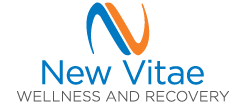Celebrating Our Veterans
Veterans Day holds a special place in our hearts. The founder of our company, Anne Mills, was a social worker with the VA. She began her career working with veterans; today, the legacy that Anne created continues to support veterans in their recovery. We can provide services to veterans through the Community of Care Network (CCN) through the VA. We also provide services to veterans via the Opioid Response Grant. Veterans in our community can receive behavioral health services, housing, and the camaraderie of living with other veterans. We celebrated our resident and staff veterans on Veterans Day with a special program at Mount Trexler Manor.
We want to share our clinical corner to help you better understand and support the veterans in your family or community.
Honoring Heroes and Healing Wounds: Supporting Veterans with PTSD Post-Traumatic Stress Disorder (PTSD) is a condition that can affect anyone who has experienced a traumatic event. For veterans, the experiences they go through during service can leave profound psychological scars. PTSD is characterized by symptoms such as flashbacks, nightmares, severe anxiety, and emotional numbing. It’s crucial to recognize that this is not a sign of weakness but a normal reaction to abnormal circumstances.
How to Be Better Supports for Veterans with PTSD
- Raise Awareness: Encourage open conversations about mental health and the challenges veterans face. By reducing the stigma surrounding PTSD, we create a more supportive environment.
- Educate and Train: Mental health clinicians, first responders, and community leaders should receive specialized training in understanding and treating veterans with PTSD.
- Offer a Listening Ear: Take the time to hear their stories and tell them you care. Be patient, nonjudgmental, and supportive.
- Access to Care: Ensure veterans have access to the mental health care they need. Advocate for better and more affordable mental health services for veterans and connect them with resources that can assist them in their recovery.
- Support Networks: Encourage veterans to build strong support networks with friends, family, and fellow veterans. These connections can be invaluable in the healing process.
- Promote Self-Care: Teach veterans about self-care practices that can help alleviate the symptoms of PTSD. This may include exercise, meditation, mindfulness, and art therapy.
- Community Involvement: Engage in activities that promote the well-being of veterans. Participate in organizations and events that support veterans, whether it’s by volunteering, fundraising, or simply attending events.






